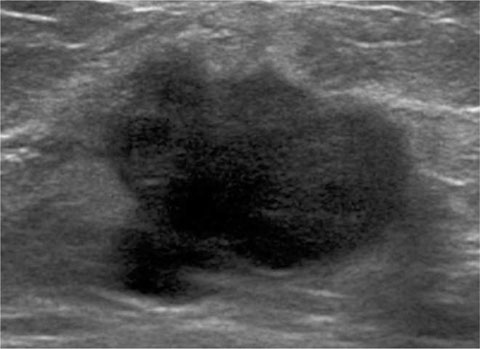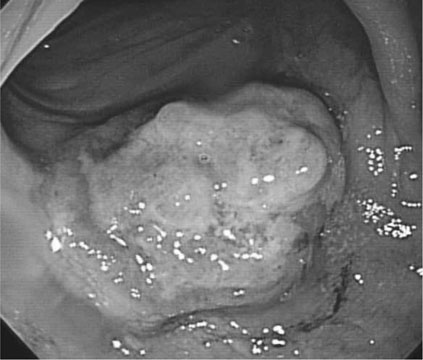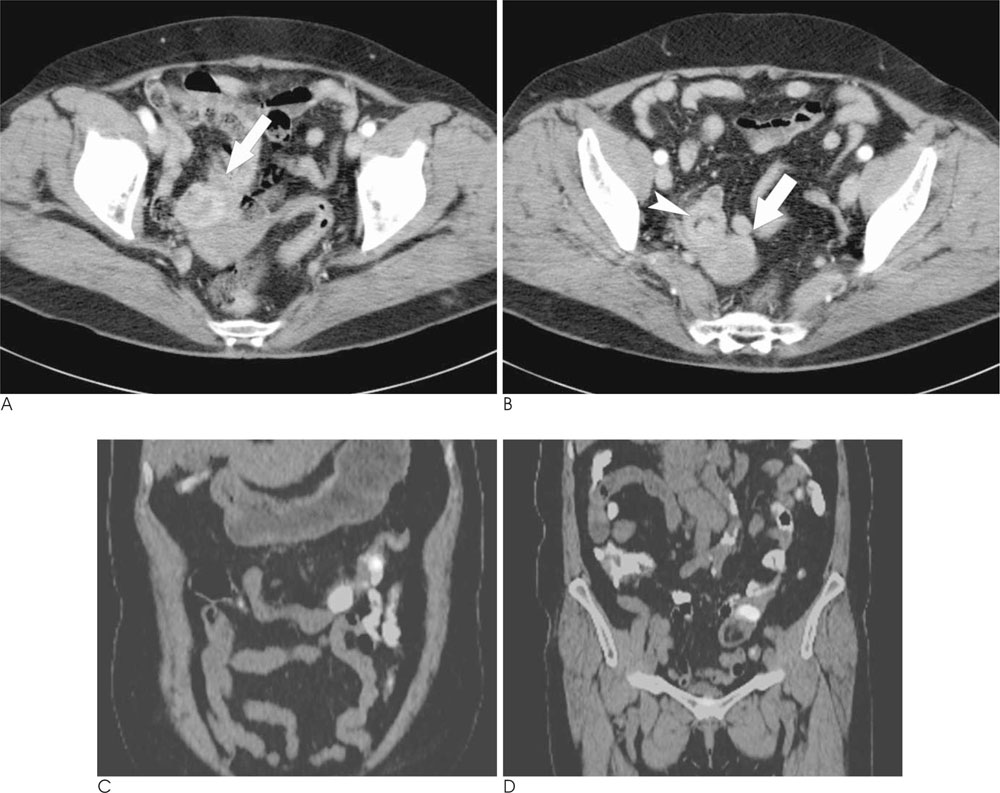J Korean Soc Radiol.
2010 Jun;62(6):551-554.
Localized Metastasis to Small and Large Bowel from Breast Cancer: A Case Report
- Affiliations
-
- 1Department of Radiology, Gangnam Severance Hospital, Yonsei University College of Medicine, Korea. ejsonrd@yuhs.ac
- 2Department of Diagnostic Pathology, Gangnam Severance Hospital, Yonsei University College of Medicine, Korea.
- 3Department of General Surgery, Gangnam Severance Hospital, Yonsei University College of Medicine, Korea.
Abstract
- Breast cancer is one of the most common malignancies in women and the main leading cause of cancer death. Breast cancer frequently metastasizes to the bones, lungs, and liver; however, gastrointestinal involvement is rare. The most frequent sites of the GI tract involved are the stomach and the small intestine, while colonic metastasis is extremely rare with the presentation being nonspecific. Early diagnosis is important for proper treatment. We present a case of metastatic breast cancer to the small and large bowel.
MeSH Terms
Figure
Reference
-
1. Jemal A, Siegel R, Ward E, Hao Y, Xu J, Murray T, et al. Cancer statistics, 2008. CA: Cancer J Clin. 2008; 58:71–79.2. Schwarz RE, Klimstra DS, Turnbull AD. Metastatic breast cancer masquerading as gastrointestinal primary. Am J Gastroenterol. 1998; 93:111–114.3. Taal BG, den Hartog Jager FC, Steinmetz R, Peterse H. The spectrum of gastrointestinal metastases of breast carcinoma: II. The colon and rectum. Gastrointest Endosc. 1992; 38:136–141.4. Rabau MY, Alon RJ, Werbin N, Yossipov Y. Colonic metastases from lobular carcinoma of the breast. Dis Colon Rectum. 1988; 31:401–402.5. Asch MJ, Wiedel PD, Habif DV. Gastrointestinal metastases from crcinoma of the breast. Autopsy study and 18 cases requiring operative intervention. Arch Surg. 1968; 96:840–843.6. Borst MJ, Ingold JA. Metastatic patterns of invasive lobular versus invasive ductal carcinoma of the breast. Surgery. 1993; 114:637–641.7. Washington K, McDonagh D. Secondary tumors of the gastrointestinal tract: surgical pathologic findings and comparison with autopsy survey. Mod Pathol. 1995; 8:427–433.8. Cifuentes N, Pickren JW. Metastases from carcinoma of mammary gland: an autopsy study. J Surg Oncol. 1979; 11:193–205.9. Graham WP 3rd, Goldman L. Gastro-intestinal metastases from carcinoma of the breast. Ann Surg. 1964; 159:477–480.10. Clavien PA, Laffer U, Torhost J, Harder F. Gastro-intestinal metastases as first clinical manifestation of the dissemination of a breast cancer. Eur J Surg Oncol. 1990; 16:121–126.
- Full Text Links
- Actions
-
Cited
- CITED
-
- Close
- Share
- Similar articles
-
- Small Bowel Metastasis from Breast Cancer: A Case Report
- Small bowel obstruction from distant metastasis of primary breast cancer: a case report
- Isolated Small Bowel Metastasis of Endometrial Carcinoma with Resultant Jejunojejunal Intussusception: A Case Report
- Cutaneous Metastasis from Prostatic Cancer
- Small Bowel Metastatic Cancer Observed With Double Balloon Enteroscopy in a Patient With a Past History of Multiple Cancers





